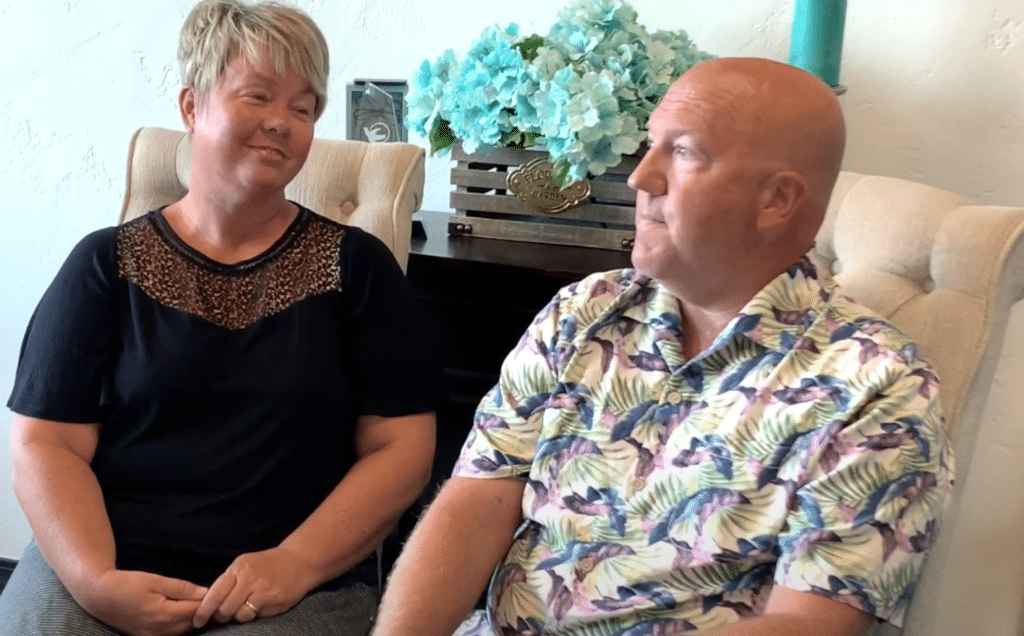Couple Discusses Life Impacted by bvFTD in Recent Interview

Dan Keuning, who is living with behavioral variant FTD (bvFTD), and his wife Lisl Keuning, recently sat down for an hour-long conversation with the national home-care company Visiting Angels about living with bvFTD.
Keuning, 50, spoke about first realizing that something was amiss during a work trip with his son in 2017. “[My son] was noticing irritability and I was having some memory lapses. I wasn’t sure what was going on,” Keuning said during the interview, which was released in late June.
The former nurse practitioner and county coroner then developed a severe gambling addiction that left his family bankrupt. In the interview, Keuning shared that he spent months “stealing from Peter to pay Paul and gambling, and it didn’t bother me at all. That’s what was so difficult. I had no remorse.
“What’s so different about FTD is that I have awareness, but I don’t have control,” he added.
Lisl Keuning was unaware of her husband’s financial missteps until it was too late.
“Our finances were a complete disaster, and I had no idea. He had taken out loans that I didn’t know. He was the perfect subject for those things that you get in the mail that say, ‘Do you need a loan for $30,000, just sign this check!’ And he did it,” Lisl shared in a 2020 interview the couple did with 9NEWS, an NBC News affiliate in Colorado.
Since being diagnosed with bvFTD in 2018, Keuning has shared his story numerous times to help raise awareness about the disease and its impact on persons diagnosed and their families. In the November 2019 issue of AFTD’s Help & Hope newsletter, Keuning wrote about finding a sense of purpose following his diagnosis. Last year, he commented on living with FTD amid the COVID-19 pandemic in a Dec. 23 article published in STAT.
In March, Keuning, along with others impacted by FTD, participated in an AFTD-hosted Externally Led Patient-Focused Drug Development meeting with the FDA to inform the development of federal regulatory processes for potential FTD therapeutics.
“If we’re able to help others find hope in a devastating diagnosis, then so be it,” Keuning said.
Watch the full interview here.
By Category
Our Newsletters
Stay Informed
Sign up now and stay on top of the latest with our newsletter, event alerts, and more…
